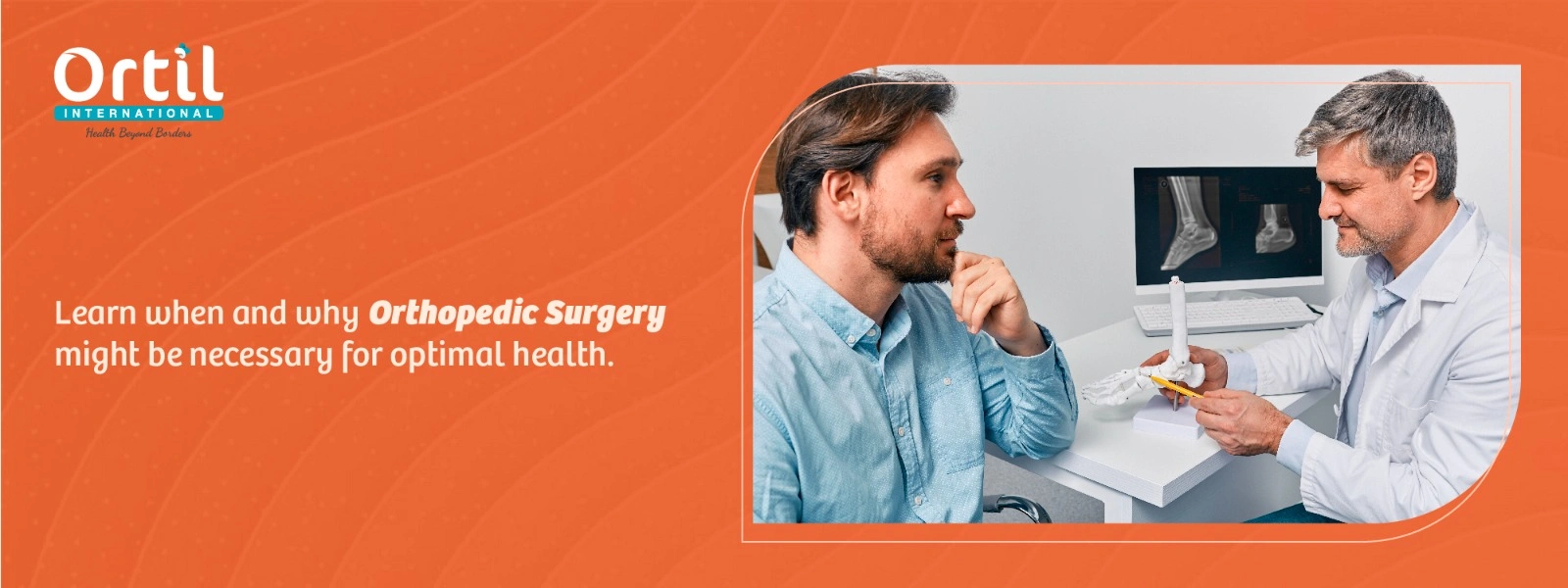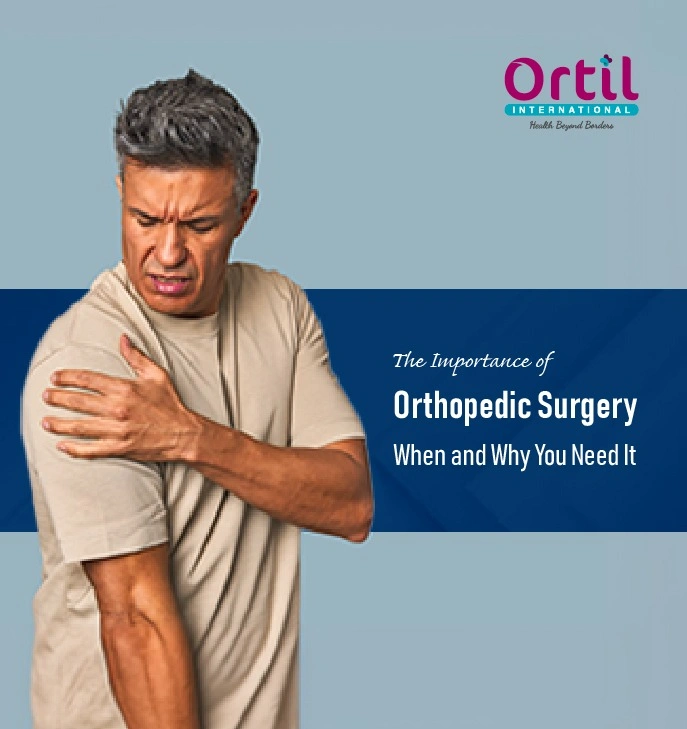Why do you need orthopedic surgery?
Orthopedic surgery may be necessary to treat conditions in which bones, joints, and muscles have been injured or affected by ongoing diseases. Orthopedic surgery is also used to treat degenerative diseases that affect the bones and joints in older individuals, such as knee replacement. It is also commonly used to treat acute injuries, primarily present in athletes engaged in sports like ACL repair.

What is Orthopedic Surgery?
All the diseases of the musculoskeletal system are diagnosed, treated, and managed in orthopedics. The musculoskeletal system in the human body involves bones, muscles, joints, cartilage, tendons, and soft tissues. Orthopedic surgery is performed when any part of this skeletal system is injured. The doctor performing this surgery is an orthopedic surgeon who repairs injured or diseased parts of the musculoskeletal system.
What are the Types of Orthopedic Surgery?
Different types of orthopedic surgeries are performed according to the part involved in the injury. Either the damaged part is repaired or replaced with artificial prosthetics. Some types are:
- Joint Replacement Surgery (Arthroplasty) such as Hip replacement, knee replacement, shoulder replacement
- Arthroscopic Surgery like Arthroscopy of the knee, shoulder, wrist, ankle, hip, and elbow
- Fracture repair surgery, such as internal fixation or external fixation.
- Spinal Surgery, which involves Spinal fusion, laminectomy, discectomy
- Osteotomy such as Knee osteotomy, hip osteotomy
- Soft Tissue Repair involves tendon repair, ligament repair (e.g., ACL reconstruction)
- Cartilage Restoration
- Hand Surgery like Carpal tunnel release, trigger finger release, tendon repair
- Foot and Ankle Surgery such as ankle fusion, Achilles tendon repair
- Shoulder Surgery Rotator cuff repair, shoulder stabilization, labral repair
- Pediatric Orthopedic Surgery, such as clubfoot correction
- Trauma Surgery as Complex fracture repair, polytrauma stabilization
- Bone Grafting like Autograft, allograft, synthetic graft
- Amputation, which involves Partial or complete removal of a limb due to injury or disease
- Orthopedic Oncology Surgery, such as bone tumor removal
Who Needs Orthopedic Surgery?
Orthopedic surgery is usually performed in patients suffering from the following conditions:
- Joint, muscle, or bone pain
- Degenerative diseases like rheumatoid arthritis or osteoarthritis
- Muscle, cartilage, or ligament tears
- Congenital conditions (present at birth)
- Breaks and fractures
- Arthritis
- Bursitis
- Tumors
When to see an Orthopedic Doctor?
You should consult your doctor if you have any of the above conditions. He will refer you to the orthopedic surgeon according to your symptoms. Consultation with an orthopedic surgeon will better describe your condition and will suggest treatment options accordingly. However, not every patient with the same disease gets the same treatment because orthopedic surgeons plan treatment according to the severity of the disease and the general health of each patient. So, it is crucial to consult an experienced professional before making an informed decision.
Conclusion
Orthopedic surgery is an important part of the healthcare system in which injuries and diseases of joints, bones, and muscles are diagnosed and treated. Orthopedic surgery is a widely used procedure for either repair or replacement.
FAQ's Of Why do You Need Orthopedic Surgery
What is the Purpose of Orthopedics?
Orthopedics deals with the problems of joints, muscles, bones, and soft tissues.
What are the benefits of orthopedic surgery?
Orthopedic surgery helps relieve pain and improve mobility & quality of life of patients.
What to Expect After Orthopedic Surgery?
After orthopedic surgery, rehabilitation starts, and patients recover in a specific period of time according to the type of disease.
What Happens During Orthopedic Surgery?
During orthopedic surgery, anesthesia is given to the patient, and the procedure of repair, removing debris, and joint replacement is performed.
What Happens After Orthopedic Surgery?
After orthopedic surgery, patients remain in the hospital for a day or two under observation. During this recovery phase, medications are given to prevent complications, and rehabilitation starts the same day or the day after surgery.
















.webp)


